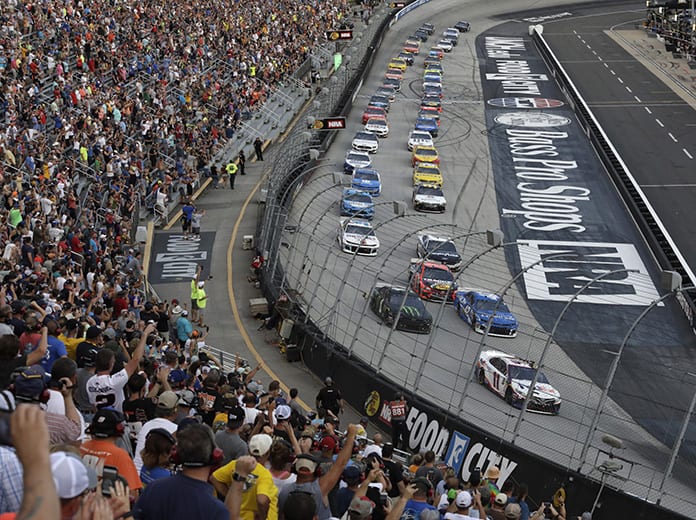DAYTONA BEACH, Fla. – NASCAR officials have revealed rule changes for the upcoming NASCAR Cup Series season that are designed to improve competition on short tracks and road courses.
The changes include dropping the height of the spoiler from eight inches to 2.75 inches, the overhang of the front splitter will be a quarter-inch instead of two inches and include two-inch wings and additional changes to the radiator pan to help reduce front-end downforce.
The package is similar to the package used during the 2017 and ’18 seasons.
“Our goal has always been to provide the best possible racing for our fans, regardless of venue,” said Steve O’Donnell, NASCAR executive vice president and chief racing development officer. “The 2019 Cup Series race package delivered some of the most exciting races on intermediate and larger tracks that our sport has seen, however we felt we could make improvements to short tracks and road courses. We believe we have found the right balance for 2020 that will allow teams to build off their previous knowledge of this package and showcase exciting side-by-side racing at tracks of all sizes.”
The changes will be in place at nine tracks on the NASCAR Cup Series schedule, including Bristol (Tenn.) Motor Speedway, Dover (Del.) Int’l Speedway, Martinsville (Va.) Speedway, New Hampshire Motor Speedway in Loudon, N.H., Phoenix Raceway in Avondale, Ariz., Richmond (Va.) Raceway, the Charlotte (N.C.) Motor Speedway Roval, Sonoma (Calif.) Raceway and Watkins Glen (N.Y.) Int’l.
“Our first and foremost core goal is to deliver great racing, and I think that we constantly evaluate the things that we do on the race track, however and wherever we need to, to improve that situation for them,” John Probst, NASCAR Senior Vice President, Innovation and Racing Development, told NASCAR.com. “And as part of our normal ongoing critique of ourselves and how we’re doing, we just felt like this was a good opportunity for us to improve the on-track product at the short tracks and road courses.”
